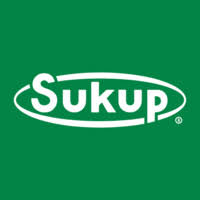Growing ‘good bacteria’ for the health market
Probioferm gears up for growth in emerging probiotics industry

The Merriam-Webster Dictionary defines serendipity as “the gift of finding valuable or agreeable things not sought for.”
It’s a word that Scott Goldsmith likes to use to explain the success of his start-up company, Probioferm LLC. Launched in January 2009, the Urbandale-based biosciences company specializes in making probiotics, which are live bacteria that are produced for their digestive health benefits.
The business began with an empty warehouse, three employees and Goldsmith’s expertise from 20 years in the probiotics industry.
In its first year, Probioferm generated $200,000 in revenues. The second year, sales climbed to $1 million, and Goldsmith expects to end this year with $2 million in sales, all without a salesperson on staff.
“Our business is exploding, and it’s simply because of word of mouth,” said Goldsmith, whose company has just completed a million-dollar equipment expansion that will enable it to increase production fivefold.
A Japanese angel
Goldsmith, a microbiologist, found himself out of a job three years ago when a competing company bought out the nutritional supplement business that he worked for, shutting down all of its probiotics plants, including its operation in Urbandale.
“One of our customers said, ‘I’m not going to this large conglomerate company,’” said Goldsmith, who was the Urbandale plant manager. “I had a relationship with him because I had helped him develop this product. So he said, ‘How about you run this company, and I’ll support it financially until it can run on its own?’”
With financial backing from that investor, a Japanese businessman named Yoshitero Koide, Goldsmith re-equipped the same Urbandale warehouse that had been gutted of equipment, purchasing new fermentation processing equipment and re-creating products he had developed.
Goldsmith said his only marketing effort consisted of sending a letter to his contacts in the industry that essentially said, “I’m opening up for business; if you’re interested, please let me know.”
Producing and selling freeze-dried probiotic cultures for both the human supplement and animal nutrition markets, Probioferm has grown to 13 employees. Its customers range from veterinarian supply companies that buy Probioferm’s stomach-soothing probiotic gel for dogs and cats, to health-food companies that purchase the probiotic powder for use in supplements.
The once obscure probiotic market has taken off in the past several years as consumers have become more attuned to its benefits. When ingested, probiotics are said to help restore or maintain a delicate balance of good and harmful bacteria in the intestines, which can be disrupted by stress, disease, poor nutrition and other environmental conditions.
“All the publicity for probiotics in the past few years with products such as Activia has helped me,” Goldsmith said. “You’ve got to have somebody out there providing it to the small and medium-sized companies.”
Big deals
Probioferm markets most of its products on a private-label basis to be sold under its clients’ brands. “The only things that might have our name on it are the pure cultures going out of here that go to a pharmaceutical company,” Goldsmith said. “But stuff going on the (retail) shelf does not have our name on it.”
The company already has landed some big deals.
On the human supplement side of the market, Probioferm’s hottest new product is a combination of probiotics and Omega-3 fish oil in capsule form that is being test-marketed by both Costco Wholesale Corp. and Wal-Mart Stores Inc. On the agricultural side, Probioferm has contracted with a major agricultural business that provides probiotics for about one-fourth of all the cattle produced in the United States, Goldsmith said. Its probiotics are also used in a product sprayed on silage to prevent mold growth.
In the international market, Probioferm is selling probiotics to companies in China, Japan, the Philippines and Taiwan for a variety of health products.
With the increased demand, Goldsmith turned to state and local economic development officials for help in equipping the plant for further growth.
“I got in touch with all these people, saying, ‘I’ve got this great opportunity; I need some help,’” he said. The Iowa Department of Economic Development responded with a $250,000 zero-interest loan, and Goldsmith also received assistance from Urbandale Development Group and Des Moines Area Community College.
More hiring
Probioferm has an in-house research and development department, which has already secured two patents, one of them the probiotics/Omega-3 combination. Currently working with three universities on research projects, Goldsmith said he expects to file for one or two more patents. The company also has its own quality control laboratory, which monitors the product at each step of the production process.
The new equipment has prompted additional hiring, including a microbiologist with a degree from Iowa State University as well as a student who recently graduated from Grand View University’s biotechnology program. In the not-too-distant future, the company will need to add a Ph.D.-level nutritional scientist, Goldsmith said. As a scientist who was thrust into the job of running a business, Goldsmith leaned heavily on advice from friends and colleagues.
“I’ve had tremendous support from business people in the community,” he said. “It’s been a learning experience, and I’ve learned a lot. We’re doing well, so I think something’s working.”
How the 260E program works
The Industrial New Jobs Training (260E) Program provides businesses that are expanding their Iowa work forces with new employee training. Administered by Iowa’s 15 community colleges, the program is financed through bonds sold by the colleges. Depending on wages paid, the business then diverts 1.5 or 3 percent of the Iowa state withholding taxes generated by the new positions to the community college to retire the bonds. Businesses may also be eligible for reimbursement up to 50 percent of the annual gross payroll costs expended for on-the-job training, as well as a corporate tax credit if Iowa employment is increased by at least 10 percent.










